
Japanese Bullhead Shark Heterodontus japonicus
The Japanese bullhead shark ( Heterodontus japonicus) is a species of bullhead shark in the family Heterodontidae found in the northwestern Pacific Ocean off the coasts of Japan, Korea, and China. This benthic shark occurs at depths of 6-37 m (20-121 ft) over rocky bottoms or kelp beds.
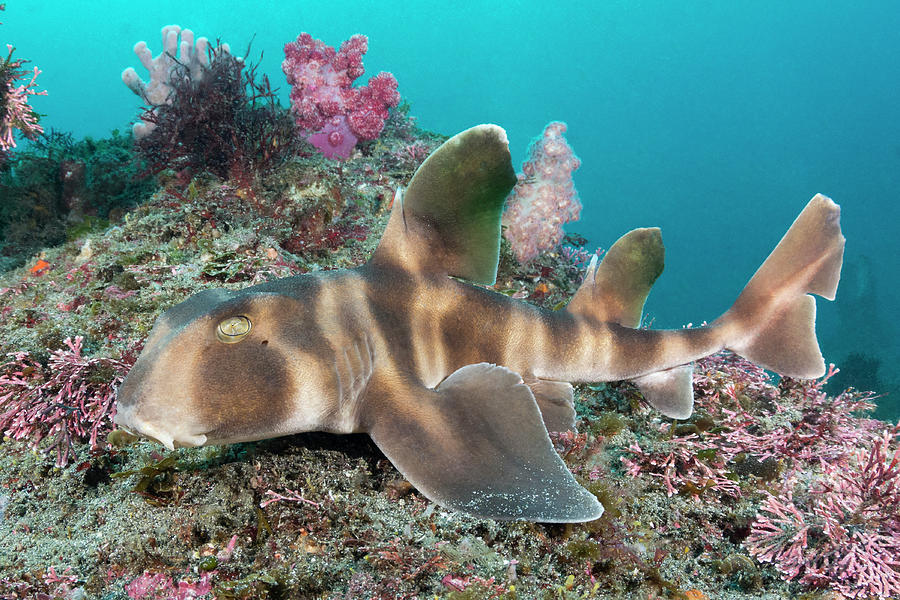
Japanese Bullhead Shark On Reef, Honshu, Japan Photograph by Andy Murch / Fine
The Japanese Bullhead Shark (Heterodontus japonicus) is a small (to 120 cm total length) shark that occurs in the Northwest Pacific Ocean from Japan to China, including North and South Korea and Taiwan. It is demersal and likely nocturnal on rocky habitats on the continental shelf at depths of 6-125 m. The species is mainly caught in gillnet.

Japanese Bullhead Shark Heterodontus japonicus
Description Bullhead shark egg case The bullhead sharks are characterised by a broad head, heavy brow, stubby snout and small mouth. The mouth is located entirely anterior to the eye sockets, due to their protruding jaw structure. They have a distinct groove from their nostrils to their mouths.
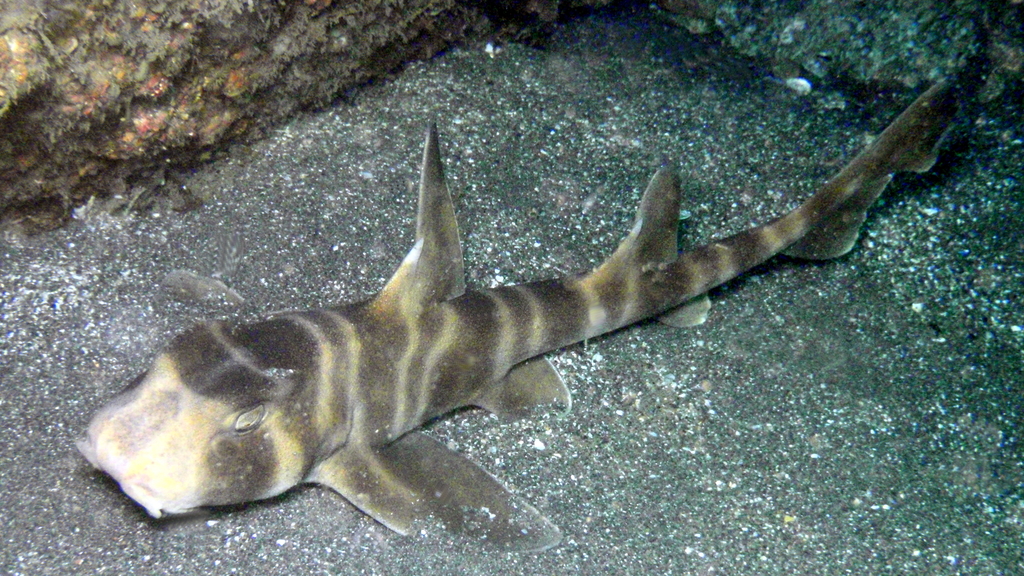
Japanese Bullhead Shark (Suma aquarium, Kobe, Hyogo prefecture, Japan) · iNaturalist
The English name is 'Bullhead Shark' but the Japanese name of the sharks are "Neko-zame" which means "Cat (neko) + Shark (same)." It is named this because where the eyes of the shark are pointy like a cat's ears at the top of the head, the overall shape makes the shark look like a cat's face. The Dragon Moray Eel.

Japanese Bullhead Shark Heterodontus japonicus
bullhead shark, (genus Heterodontus ), any shark of the genus Heterodontus, known for its broad head, small mouth, and short snout. The genus contains about 11 species and constitutes the family Heterodontidae (order Heterodontiformes).

Japanese Bullhead Shark 005 Sharks and Rays
They have cone-shaped teeth in the front of their mouths and fat, grinding molars in the back of their mouths. They are found in shallow water in the western and eastern Pacific Ocean and the western Indian Ocean. They eat small fish, crustaceans, and mollusks. Species include: the crested bullhead shark, the horn shark, the Japanese bullhead.
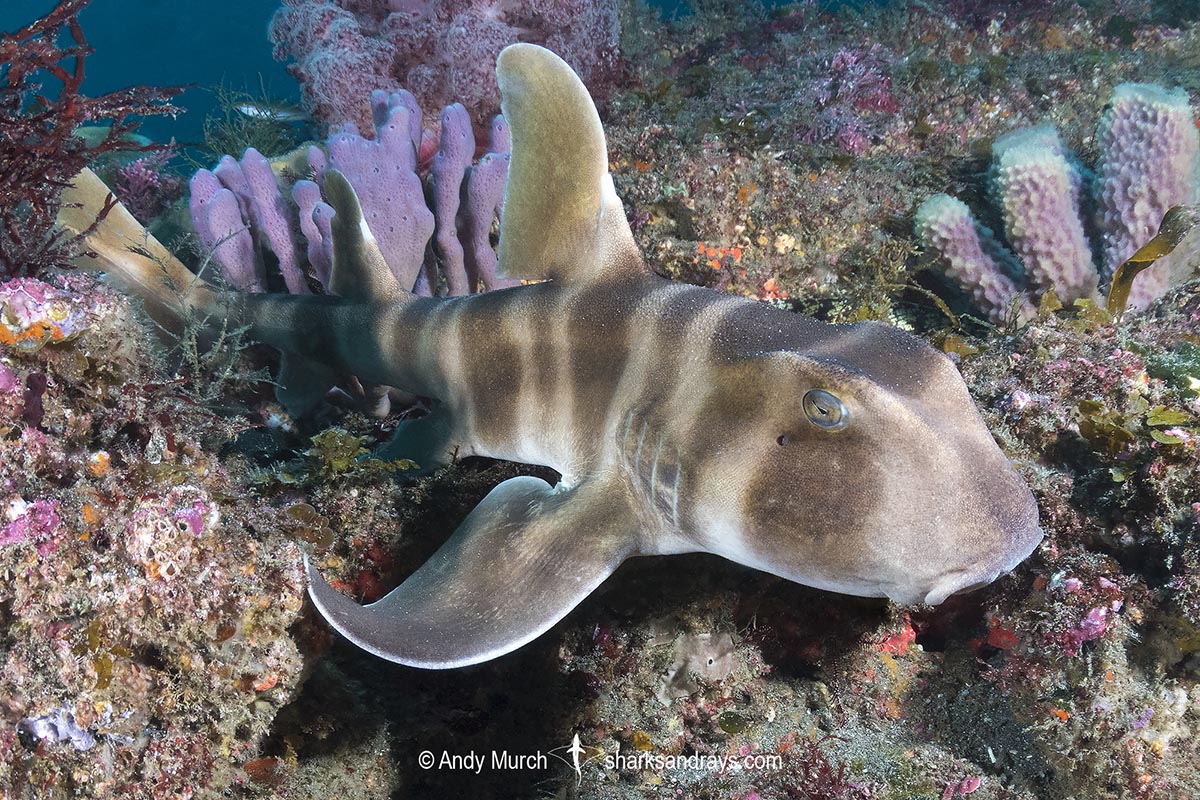
Japanese Bullhead Shark Heterodontus japonicus
Size Maximum length 120cm. Size at birth approx. 18cm. Habitat warm-temperate and sub-tropical seas. Prefers rocky coral reefs and areas of kelp from 6-37m. Distribution Northwestern Pacific. The Japanese horn shark is found around Japan, Korea, northern China, and Taiwan. Conservation Status LEAST CONCERN
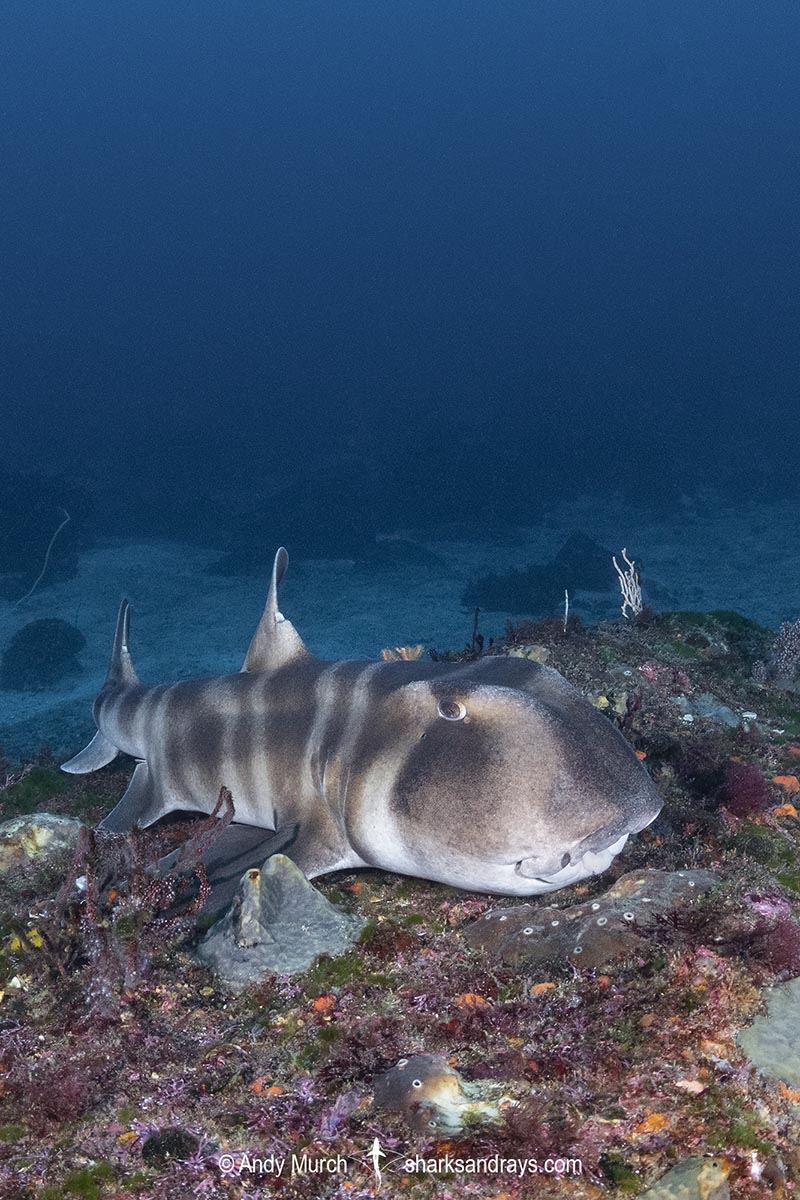
Japanese Bullhead Shark 011 Sharks and Rays
Japanese bullhead shark. Kingdom. Animalia. Location in Taxonomic Tree . Genus. Heterodontus. Species. Heterodontus japonicus. Identification Numbers. TSN: 159795. Geography. Working with others to conserve, protect and enhance fish, wildlife, plants and their habitats for the continuing benefit of the American people.

Japanese Bullhead Shark ZooChat
The Japanese Bullhead (Heterodontus japonicus) apparently uses communal nesting sites — with as many as 15 eggs deposited in the same patch — using them as a kind of heterodontoid day care. Due to their awkward shape, each bullhead egg case requires several hours to rotate out of the mother shark's cloaca.
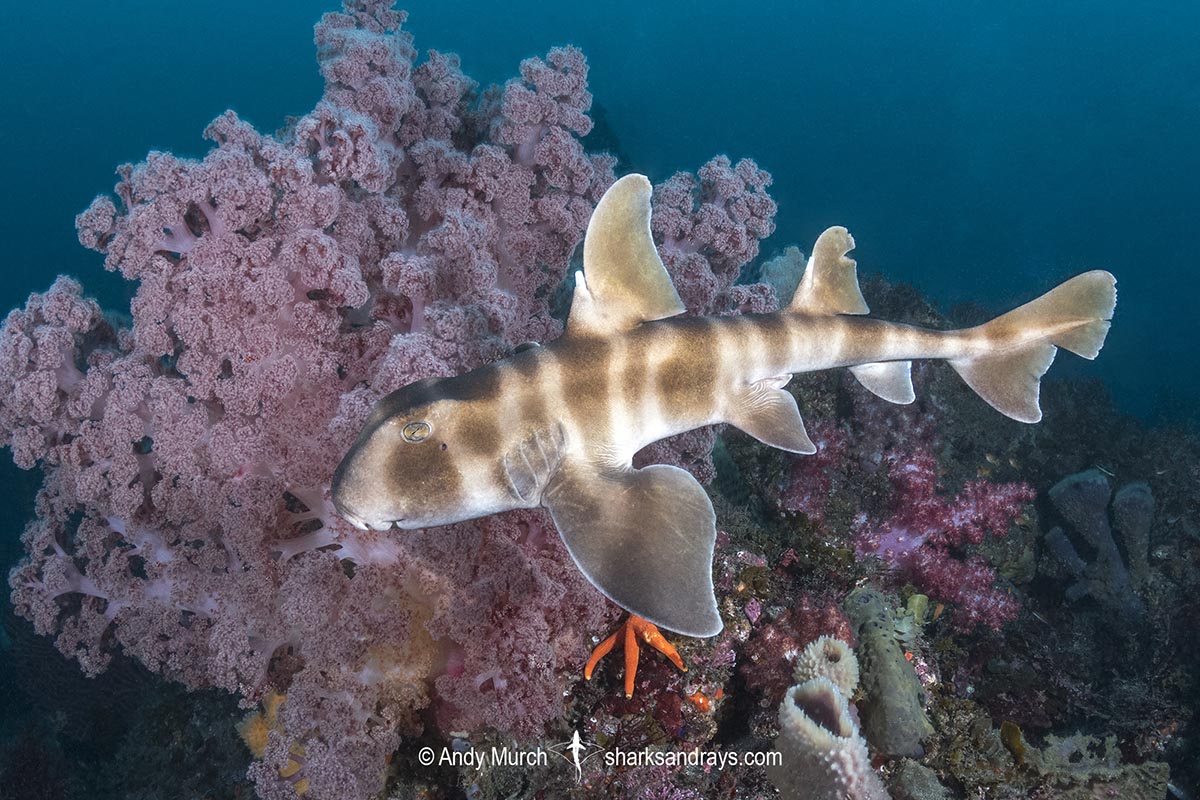
Japanese Bullhead Shark Heterodontus japonicus
Japanese bullhead shark (Heterodontus jaconipus) is one of the nine known living species of bullhead sharks of the world. They belong to the family Heterodontidae. They're found near shore on the continental shelf of the northwestern Pacific Ocean on the coast of Japan, Korea, and China.

Japanese Bullhead Shark Heterodontus japonicus
Description This shark is 3.9 ft tall, with a cylindrical body. It has a short, squat head and a pig-like snout. There are shallow ridges over the shark's eyes, and the nostrils are covered with flaps of skin that extend to the mouth.

Japanese Bullhead Shark Heterodontus japonicus
Oviparous. Eggs are laid in rocks or in kelp at depths of about 8 or 9 m and are present from March through September. Eggs are more abundant, however, in March and April. Eggs are hatched in about a year; size at hatching is about 18 cm. There may be a `nest' for several females laying eggs but this is not a true nest.

Japanese bullhead shark Sumida Aquarium, February 2016 ZooChat
The Japanese Bullhead Shark can be recognised by its pattern of broad saddles or bars on the body. The related Zebra Horn Shark, Heterodontus zebra has narrower dark bars on a very pale body. The Zebra Horn Shark has been recorded from Japan, Korea, China, Vietnam, Indonesia and the north-west shelf of Western Australia. Habitat
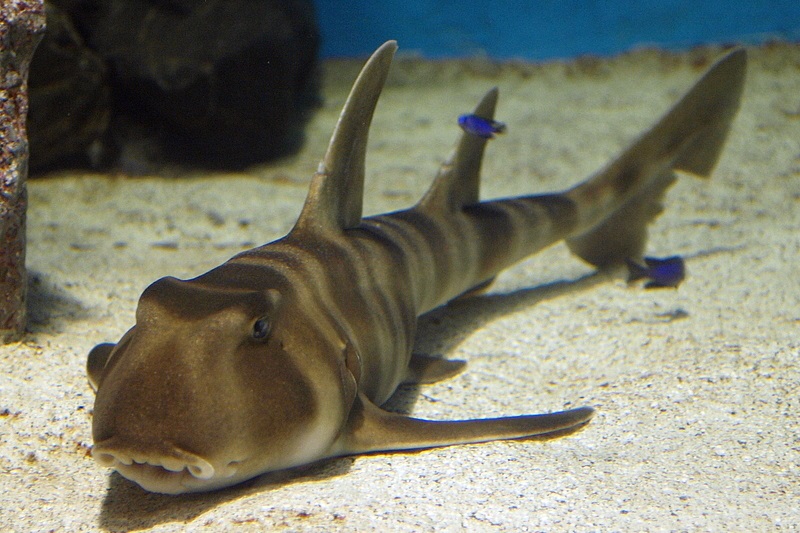
Japanese Bullhead Shark Heterodontus Japonicus Shark Database
The Japanese bullhead shark (Heterodontus japonicus) is a species of bullhead shark in the family Heterodontidae found in the northwestern Pacific Ocean off the coasts of Japan, Korea, and China. This benthic shark occurs at depths of 6-37 m (20-121 ft) over rocky bottoms or kelp beds. Measuring up to 1.2 m (3.9 ft) long, it can be identified by its short, blunt head, two high dorsal fins.

Sharks in Japan American Oceans
A modestly sized shark reaching a maximum length of 1.2 m, the Japanese Bullhead Shark has a cylindrical body with a short, wide head and blunt, pig-like snout typical of a bullhead shark. The nostrils are divided into incurrent and excurrent openings by long flaps of skin that reach the mouth.
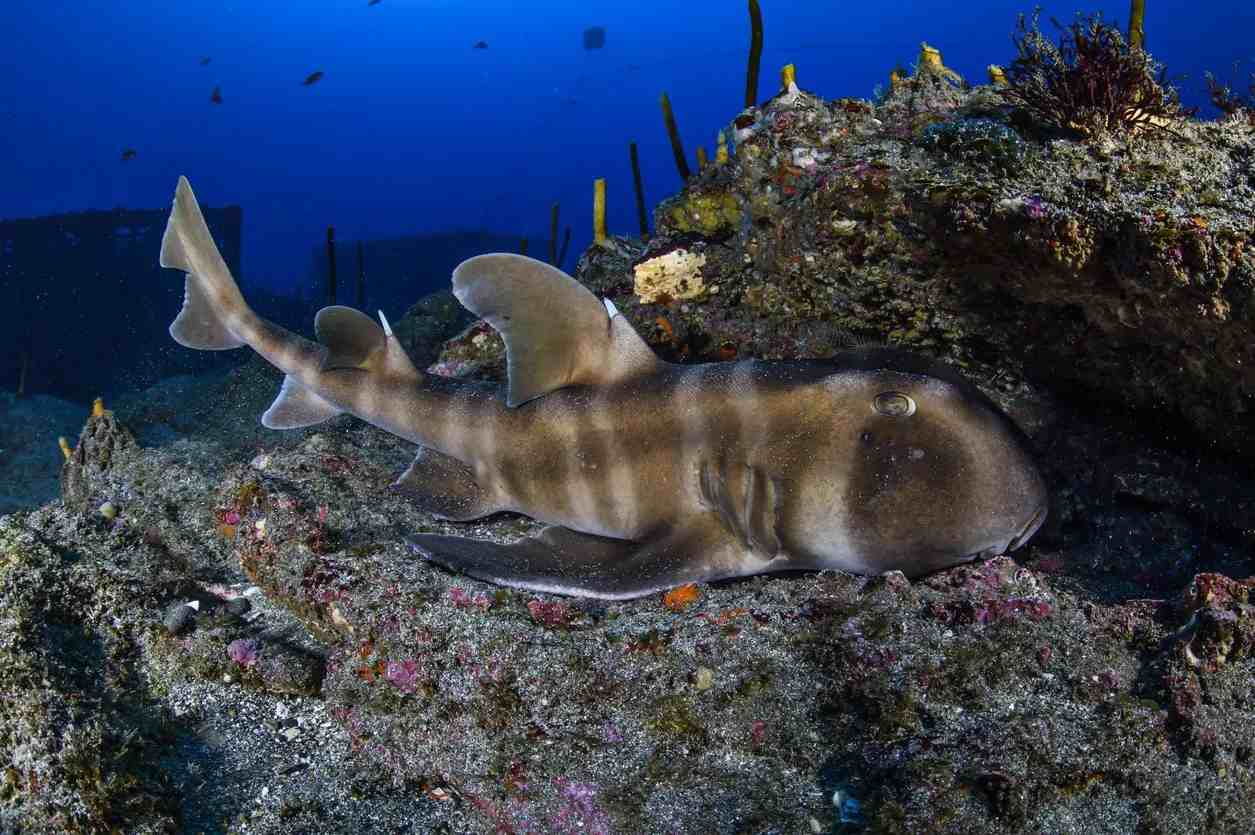
Fun Japanese Bullhead Shark Facts For Kids Kidadl
The Japanese bullhead shark (Heterodontus japonicus) is a species of bullhead shark, family Heterodontidae, found in the northwestern Pacific Ocean off the coasts of Japan, Korea, and China. This benthic shark occurs at depths of 6-37 m (20-121 ft) over rocky bottoms or kelp beds. Measuring up to 1.2 m (3.9 ft) long, it can be identified by.